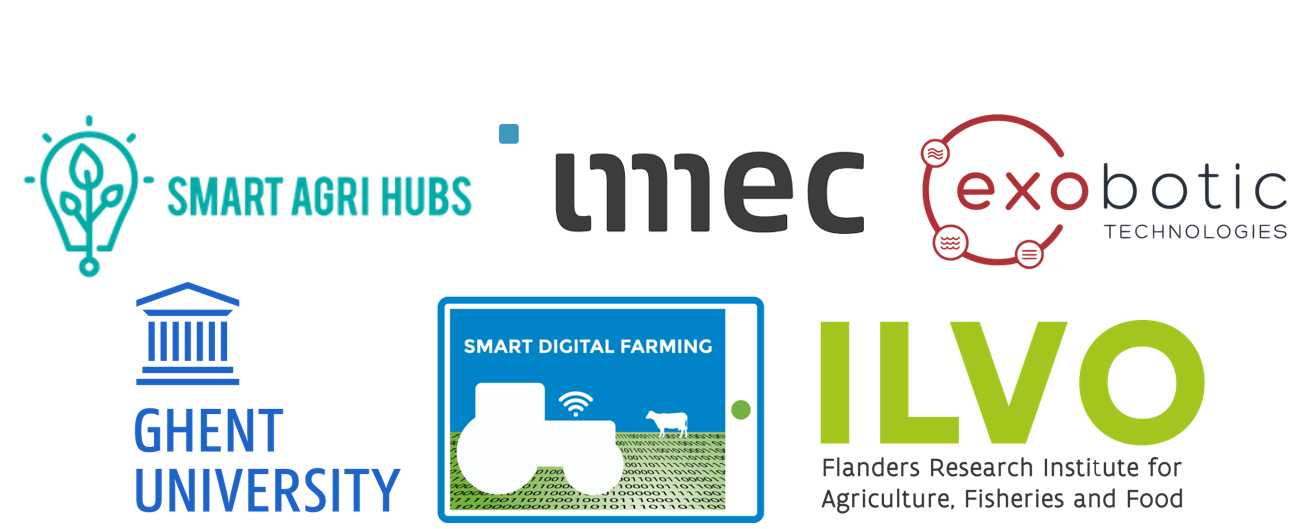General AI4Agriculture
This research is part of the Smart Agri Hubs project, a European project that aims to stimulate digital innovation in the European agri-food industry.
Goal: Economically, ecologically and socially, the importance is increasing of reduced pesticide use in weed and disease control in arable and horticulture. Through this project, the potential of artificial intelligence (AI) is combined with the use of RGB, multi- and hyperspectral cameras to map disease and weed pressure in crops. With this technology, the farmer or contractor can apply the right products, at the right concentration, to the right place, resulting in more efficient disease and weed control.
How it works: Cameras were mounted on the spray boom of sprayers from contractors involved in the project. These are used to capture data under practical conditions. Via a drone equipped with a camera, plots of land of farmers involved are mapped. All data collected in this first phase of the project will be used in a second phase to develop detection algorithms based on Artificial Intelligence (AI).
The focus is on two crops: potato and maize.
In potatoes, the focus is on weed and disease detection (Alternaria solani).
In maize, the focus is on weed detection just prior to herbicide treatment. The developed models will serve as input to construct task maps that the farmer or contractor can use to perform variable rate spraying, or for real-time control of the sprayer.
On June 24th, 2021, in collaboration with Proximus and the project partners listed below, we realized a demonstration of what 5G, weed detection via AI, and an autonomous drone can accomplish. By using these technologies, we can create a task map in real-time for site-specific spraying of weeds in maize.
Living Labs Approach: Central to the project is a living lab approach. Within the Living Lab, scientific experts (ILVO, UGent) work together with farmers, agricultural contractors, innovation hubs (SDF and Flanders Food), Innovation Support Center for Agricultural and Rural Development (Innovatiesteunpunt) and technology producers of cameras (Imec), drones and robots (Exobotic) and software for Artificial Intelligence (Robovision) to achieve the objectives of the project. Collaboration with farmers and contractors is very important. From the beginning, their extensive practical knowledge is called upon and their feedback is used in the design of the technological solutions. Moreover, in this way data can be captured under realistic practical conditions, so the technology can be tested, evaluated and demonstrated in practice.
Relevance: The AI4Agriculture project is a perfect illustration of how the living lab works. The farmer and contractor are a key partner in the project and throughout the process knowledge exchange between them, the technology companies and academic experts is central. This project also reflects the relevance of testing innovations in practice. Indeed, by conducting the experiments in real-field conditions, a number of challenges for this technology were uncovered. This feedback is the onset for further optimization of this promising technology.
Do you want to know more about this project? Feel free to contact us!
